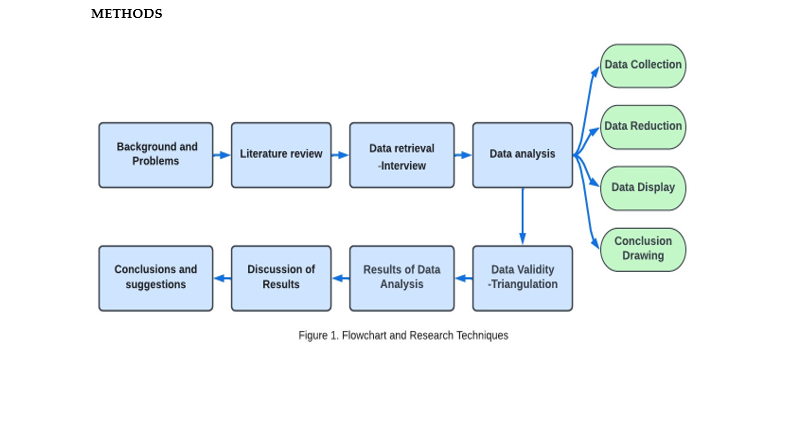Implementation of Nursing Credentials and Recredentials by the Credentials Subcommittee at X Distric Hospital
DOI:
https://doi.org/10.23917/bik.v16i1.1375Abstract
The results of the preliminary study indicated that the implementation of nursing credentials and recredentials by the credentials subcommittee in the hospital was not optimal. Not many studies had investigated the problems that caused the implementation of nursing credentials and recredentials was not optimal. This research was very important to do to explore more deeply about the problems that caused the credentials subcommittee was not optimally in the implementation of nursing credentials and recredentials. To explore the implementation of nursing credentials and recredentials by the credentials subcommittee in hospital. This study used a case study method. This study used a nonprobability sampling method with a purposive sampling approach. The research participants were three stakeholders in the hospital. Data collection methods with documentation and interviews. Data analysis method according to Miles and Huberman. The results of data analysis obtained four themes: The process of implementing credentials and recredentials through training, OSCA exams and mentoring, has not used OPPE and FPPE, has not been carried out regularly, the organisation is carried out after the nurse is accepted. The implementation of the results of nursing credentials and recredentials has no reward and punishment, not one perception with staffing, in nursing practice has not been detailed and has not been used in determining nurse incentives. Obstacles in the implementation of credentials and recredentials are the nursing committee structure that serves in other functional areas, there is no one perception about the implementation of nursing credentials and recredentials with management, Covid 19 pandemic, and the application of clinical authority. Efforts to overcome obstacles by approaching management, using credentials results to determine nurse incentives, socialization to nurses and management as well as coordinating and cooperating with other sections Conclusion: There are barriers in the implementation of nursing credentials and recredentials. Efforts are needed to overcome obstacles in the implementation of nursing credentials and recredentials.
References
Alligood, M. R. (2014). Nursing Theorists And Their Work. In ELSEVIER (8th ed., Issue 8). ELSEVIER MOSBY.
Alligood, M. R. (2017). Nursing Theorists And Their Work. (Pakar Teori Keperawatan dan Karya Mereka) (A. Y. S. Hamid & K. Ibrahim (Eds.); 8th ed.). Elsevier.
Asnawi, Kamil, H., Marthoenis, Marlina, & Rahayunignsih, E. M. (2021). Increasing The Knowledge, Attitude And Behavior Of Nurses Through Nursing Professional Credential Training. (Peningkatan Pengetahuan, Sikap Dan Perilaku Perawat Melalui Pelatihan Kredensial Profesi Keperawatan). 3(March), 6. Journal of Telenursing (JOTING). https://doi.org/10.31539/joting.v3i2.2756
Benner, P. (n.d.) (1984). From novice to expert?: excelent and power in clinical nursing practice. Addison-Wesley.
Fajarini, M., Rahayu, S., & Setiawan, A. (2022). Evidence-based Practice and Information and Communication Technology: Stakeholders’ Insights. 15(2), 206–213. Jurnal Berita Ilmu Keperawatan. https://doi.org/10.23917/bik.v15i2.17727
Farber, J. E. (2019). Cultural Competence of Baccalaureate Nurse Faculty: Relationship to Cultural Experiences. Journal of Professional Nursing, 35(2), 81–88. https://doi.org/10.1016/j.profnurs.2018.09.005
Fatikhah. (2016). Phenomenological Study of the Experience of the Nursing Committee in Implementing Credentials at Tugurejo Hospital, Semarang. (Studi Fenomenologi Pengalaman Komite Keperawatan dalam Pelaksanaan Kredensial di RSUD Tugurejo Semarang). http://eprints.undip.ac.id/48229/
Grady, T. P. (2022). Privileging for Nursing?: Structural Requisites for Next-Step Professional Governance. Nurse Leader, 20(5), 465–472. https://doi.org/10.1016/j.mnl.2022.06.001
Hamilton, S. F. (2019). We need a systemic approach to career pathways. Phi Delta Kappan, 101(4), 38–42. https://doi.org/10.1177/0031721719892973
Harahap, R. A. (2017). The Effect of Predisposing, Enabling and Reinforcing Factors on the Administration of Hepatitis B Immunization to Infants at the Bagan Batu Community Health Center, Bagan Sinembah District, Rokan Hilir Regency. (Pengaruh Faktor Predisposing, Enabling dan Reinforcing terhadap Pemberian Imunisasi Hepatitis B pada Bayi di Puskesmas Bagan Batu Kecamatan Bagan Sinembah Kabupaten Rokan Hilir). Jurnal Ilmiah Penelitian Kesehatan (JUMANTIK), 1(1), 79–103. http://dx.doi.org/10.30829/jumantik.v1i1.1016
Hardi, D. E., Yulia, S., & Muliyadi, M. (2019). Factors Associated with Safe Staffing in Hospitals. (Faktor Faktor Yang Berhubungan dengan Safe Staffing di Rumah Sakit). Jurnal Berita Ilmu Keperawatan, 12(2), 72–83. https://doi.org/10.23917/bik.v12i2.4504
Hariyati, T. S., Sutoto, & Irawaty, D. (2018). Nursing Credentials and Recredentials According to SNARS (Kredensial dan Rekredensial Keperawatan Sesuai SNARS (1st ed.)).
Haryanto, M. S. (2020). The experience of nurses on the process of career paths in Bandung district hospitals. (Pengalaman perawat terhadap proses jenjang karir di rumah sakit Kabupaten Bandung). Jurnal Ilmiah Kesehatan Pencerah, 09(1), 27–35. https://doi.org/10.12345/jikp.v9i01.148
Heryana, A. (2020). Research Ethics. (Etika Penelitian). Universitas Esa Unggul. http://dx.doi.org/10.13140/RG.2.2.13880.16649
International Council of Nurses. (2021). The Global Voice Of Nursing In The Year Of The Nurse And The Covid-19 Pandemic.
Kiyimba, N., Lester, J. N. O’Reilly, M. (2019). Using Naturally Ocurring Data in Qualitative Health Research: A Practical Guide. Springer. http://dx.doi.org/10.1007/978-3-319-94839-3
Klein, T. A., Kaplan, L., Stanik-Hutt, J., Cote, J., & Brooks, O. (2020). Hiring and Credentialing of Nurse Practitioners as Hospitalists: A National Workforce Analysis. Journal of Nursing Regulation, 11(3), 33–43. https://doi.org/10.1016/S2155-8256(20)30132-0
Marwiati. (2018). Description of the Implementation of Nurse Competency According to Clinical Appointment at KRT Setjonegoro Hospital, Wonosobo. (Deskripsi Implementasi Kompetensi Perawat Sesuai Clinical Appointment Di Rsud Krt Setjonegoro Wonosobo). Jurnal Penelitian Dan Pengabdian Kepada Masyarakat UNSIQ, 5(3), 314–326. https://doi.org/10.32699/ppkm.v5i3.478
McMullen, P. C., & Howie, W. O. (2020). Credentialing and Privileging: A Primer for Nurse Practitioners. Journal for Nurse Practitioners, 16(2), 91–95. https://doi.org/10.1016/j.nurpra.2019.10.015
Minister of Health of the Republic of Indonesia. (Menteri Kesehatan Republik Indonesia. (2013). Regulation of the Minister of Health of the Republic of Indonesia Number 49 of 2013 Concerning Hospital Nursing Committees. (Peraturan Menteri Kesehatan Republik Indonesia Nomor 49 Tahun 2013 Tentang Komite Keperawatan Rumah Sakit).
Minister of Health of the Republic of Indonesia. (Menteri Kesehatan Republik Indonesia. (2017). Regulation of the Minister of Health of the Republic of Indonesia Number 40 of 2017 Concerning Development of Clinical Nurse Professional Career Paths. (Peraturan Menteri Kesehatan Republik Indonesia Nomor 40 Tahun 2017 Tentang Pengembangan Jenjang Karir Profesional Perawat Klinis).
Miles, M. B., & Huberman, A. M. (2014). Qualitative Data Analysis (Analisa Data Kualitatif) (T. R. Rohidi (Ed.)). Penerbit Universitas Indonesia (UI-PRESS).
Moleong, L. J. (2017). Qualitative Research Methodology. (Metodologi Penelitian Kualitatif). PT REMAJA ROSDAKARYA.
Muhadi. (2021). PMK implementation number 40 of 2017 concerning professional career paths for nurses at the Surabaya Islamic Hospital. (Implementasi PMK no. 40 tahun 2017 tentang jenjang karier profesional perawat Rumah Sakit Islam Surabaya). Jurnal Kebijakan Kesehatan Indonesia (JKKI) 10(01), 17–22. https://doi.org/10.22146/jkki.60220
Mukhtar. (2013). Practical Methods of Qualitative Descriptive Research (First). (Metode Praktis Penelitian Deskriptif Kualitatif (Pertama)). REFERENSI(GP Press Group).
Nelwati, Abdullah, K. L., Chong, M. C., & McKenna, L. (2020). The effect of peer learning on professional competence development among Indonesian undergraduate nursing students: A quasi-experimental study. Journal of Professional Nursing, 36(6), 477–483. https://doi.org/10.1016/j.profnurs.2020.03.008
Nilawati, N. (2020). Credentialing as a Staff Development Effort. (Kredensialing sebagai Upaya Pengembangan Staf). Https://Doi.Org/10.31219/Osf.Io/Xnfmd.
Regent Regulation X Number 73 of 2020 Concerning Remuneration at the BLUD of District X Hospital. (Peraturan Bupati X Nomor 73 Tahun 2020 Tentang Remunerasi Pada BLUD RSUD Kabupaten X. (2020)).
Regulation of the Minister of Administrative Reform and Bureaucratic Reform of the Republic of Indonesia Number 35 of 2019 Concerning Functional Positions of Nurses. (Peraturan Menteri Pendayagunaan Aparatur Negara Dan Reformasi Birokrasi Republik Indonesia Nomor 35 Tahun 2019 Tentang Jabatan Fungsional Perawat. (2019)).
Raghunathan, K., Mckenna, L., & Peddle, M. (2023). Nurse Education Today Factors in integrating academic electronic medical records in nursing curricula?: A qualitative multiple case studies approach. Nurse Education Today, 120(November 2022), 105626. https://doi.org/10.1016/j.nedt.2022.105626
Scanlon, A., Bryant-Lukosius, D., Lehwaldt, D., Wilkinson, J., & Honig, J. (2019). International Transferability of Nurse Practitioner Credentials in Five Countries. Journal for Nurse Practitioners, 15(7), 487–493. https://doi.org/10.1016/j.nurpra.2019.02.007
Smith, J. H., & Sweet, L. (2019). Becoming a nurse preceptor, the challenges and rewards of novice registered nurses in high acuity hospital environments. Nurse Education in Practice, 36(March), 101–107. https://doi.org/10.1016/j.nepr.2019.03.001
Sterner, A., Hagiwara, M. A., Ramstrand, N., & Palmér, L. (2019). Factors developing nursing students and novice nurses’ ability to provide care in acute situations. Nurse Education in Practice, 35(March 2018), 135–140. https://doi.org/10.1016/j.nepr.2019.02.005
Sugito. (2023). Semi Structured Interview Guide. (Panduan Wawancara Semi Terstruktur). https://doi.org/10.5281/zenodo.7558465
Sugiyono. (2021). Qualitative Research Methods (4th ed.) (Metode Penelitian Kualitatif) (4th ed.). Alfabeta.
Sumpter, D., Blodgett, N., & Howard, V. (2022). Transforming nursing education in response to the Future of Nursing 2020 À 2030 report. Nursing Outlook, 70(6), S20–S31. https://doi.org/10.1016/j.outlook.2022.02.007
Susanto, T. D., Diani., M. M., & Hafidz, I. (2018). User Acceptance of e-Government Citizen Report System (a Case Study of City113 App). Procedia Computer Science, 124 (2017) 560–568 https://doi.org/10.1016/j.procs.2017.12.190
Tholen, G. (2017). Symbolic Closure: Towards a Renewed Sociological Perspective on the Relationship between Higher Education, Credentials and the Graduate Labour Market. Sociology, 51(5), 1067–1083. https://doi.org/10.1177/0038038516641857
Utami, K. S. W., Wantiyah, & Purwandari, R. (2022). Differences in knowledge level of academic and internship students on the prevention of Healthcare Associated Infections ( HAIs ). Berita Ilmu Keperawatan, 15(2), 150–157. https://doi.org/10.23917/bik.v15i2.17377
Wahana, H., & Hasaini, A. (2021). Factors Affecting Health Protocol Compliance during the Covid-19 Pandemic?: A Literature Review. JNHS (Journal of Nursing and Health Sciences): Vol. 1 No. 2. http://dx.doi.org/10.33846/hn50103

Downloads
Submitted
Accepted
Published
How to Cite
Issue
Section
License
Copyright (c) 2023 Sugito, Luky Dwiantoro, Anggorowati, Muhammad Hasib Ardani, Madya Sulisno

This work is licensed under a Creative Commons Attribution 4.0 International License.


















